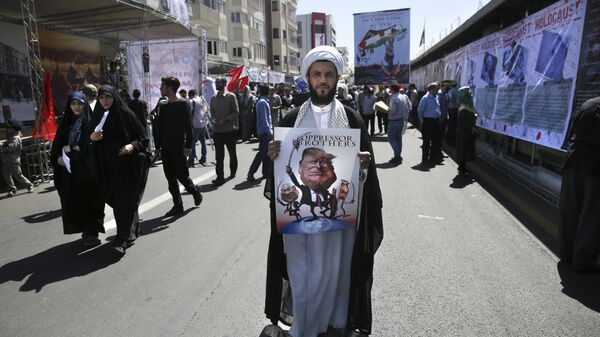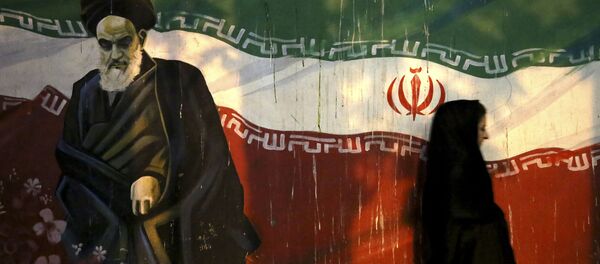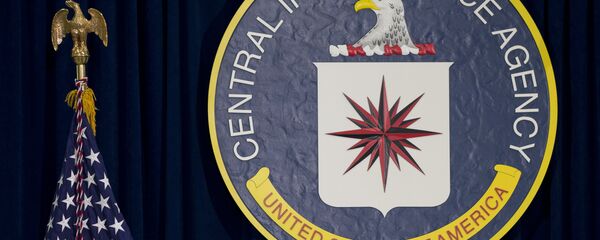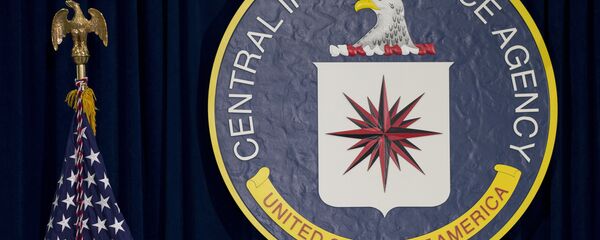The idea of a regime change in Tehran is gaining momentum in Washington following Donald Trump's exit from the Joint Comprehensive Plan of Action (JCPOA), commonly known as the Iran nuclear deal.
"We have a president who is tough," personal attorney to Trump Rudy Giuliani told a conference of expatriate opponents of Iran's government on May 5. "We have a president who is as committed to regime change [in Iran] as we are."
Yet another Iran hawk is Mike Pompeo, the newly-appointed secretary of state, who proposed not only kicking off a coup in Tehran, but also bombing the US rival.
As Stephen M. Walt, professor of international relations at Harvard University, noted in his May 8 op-ed for Foreign Policy magazine that "the siren song of regime change, which US hawks and other anti-regime forces have been pursuing for decades" is at the core Trump's decision to rip the Iran deal up.
Regime Change in Iran: From Mossadegh's Ouster to Bolton's Vow
Speaking to Sputnik, Wall Street analyst and investigative journalist Charles Ortel opined that "President Trump' decision [to withdraw from the Iran nuclear deal] is long overdue."
"President Obama purposefully negotiated an arrangement that flouts the requirement to get Senate approval for a treaty. He did so knowing that the Senate would never approve the document(s) ultimately signed," he suggested.
Ortel stressed that while he accepts that "US historical interference in the internal affairs of Iran has had many unfortunate consequences," he also believes that "the Iranian people deserve free and fair elections so they may determine, at long last, their own true destiny."
The monarchy in Iran was restored, Mossadegh's reforms abolished. However, the US interference later bore bitter fruits, leading to the Islamic Revolution of 1979 and the suspension of relations between Washington and Tehran.
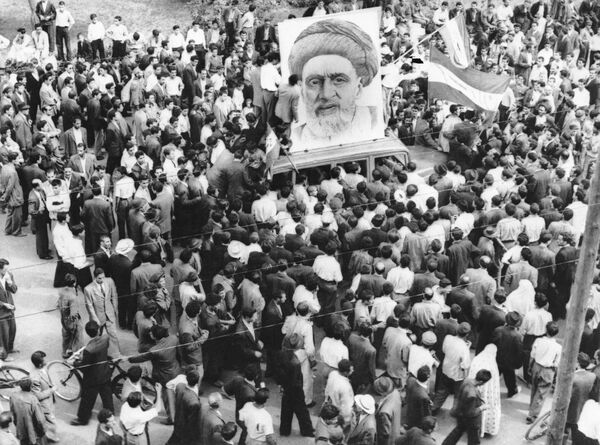
"Accepting that Republicans share guilt, the vexing current problems in Iran fall on the shoulders of America's worst president — Jimmy Carter (1977 — 1981) — and his incompetent advisors," Ortel opined. "The damage Carter did supporting radical Shia fundamentalism was then further mangled by all successive presidents until the current one, who may yet actually achieve peace in the Middle East."
The US continued its efforts to meddle in Iran's affairs by providing military aid and financial support to Baathist Iraq headed by Saddam Hussein during the Iran — Iraq War (1980-1988). Feeding Hussein with tactical intelligence and being aware that Iraqi forces would use sarin gas against Iranian military personnel was one of Washington's controversial practices during the war.
"The administrations of Ronald Reagan and George H.W. Bush authorized the sale to Iraq of numerous items that had both military and civilian applications, including poisonous chemicals and deadly biological viruses, such as anthrax and bubonic plague," Michael Dobbs of The Washington Post reported in December 2002.
Thus, it is hardly surprising that an anti-American sentiment has long been flourishing in Iran.
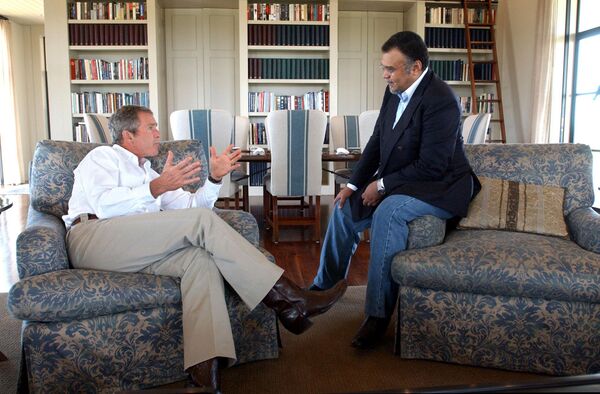
'The Redirection': Trump Follows in George W. Bush's Footsteps
"In contrast to other approaches, the Trump Administration has already made enormous progress encouraging moderation inside Saudi Arabia, and tolerance/trade with Israel and the West, while aggressively striking against radical Islamists in many places," Ortel argues asking "what is wrong with the Iranian people voting to build a tolerant, possibly secular state, in truly free, fair elections?"
At the same time, Trump's crackdown on Iran appears to be nothing less than the continuation of George W. Bush's policy described in a 2007 op-ed entitled "The Redirection" by Pulitzer Prize-winning investigative journalist Seymour Hersh.
In his article, Hersh explained that after the 2003 US invasion of Iraq and the overthrowing of Saddam Hussein, the Bush administration found itself on the horns of a dilemma, as "the most profound-and unintended-strategic consequence of the Iraq war [was] the empowerment of Iran."
The journalist wrote that the White House decided to focus on undermining Tehran through clandestine operations in Lebanon, Syria and Iran, adding that "a by-product of these activities has been the bolstering of Sunni extremist groups" as well as the deepening of sectarian divisions between Sunnis and Shiites.
Actually, the Obama administration followed its predecessors' suit by exerting substantial pressure on Damascus by providing support to jihadi extremists, while its successors in the Trump cabinet have dealt a blow to Iran by exiting the JCPOA.
However, the picture seems to be much broader. In 2007 retired US Army General Wesley Clark, a former Supreme Allied Commander Europe of NATO, remarked in his speech at the Commonwealth Club of California that in 1991, then-Undersecretary of Defense for Policy Paul Wolfowitz told him that the US had "five or 10 years to clean up [former] Soviet client regimes in Syria, Iran and Iraq before the next great super power comes on to challenge us."
Paul Wolfowitz is well known for the so-called "Wolfowitz Doctrine" — an unofficial title given to the initial version of the Defense Planning Guidance for the FY1994 — 1999. The post-Cold war doctrine said the US should "prevent any hostile power from dominating a region whose resources would, under consolidated control, be sufficient to generate global power." The Middle East and its energy resources have long been in the focus of US war planners and strategists.
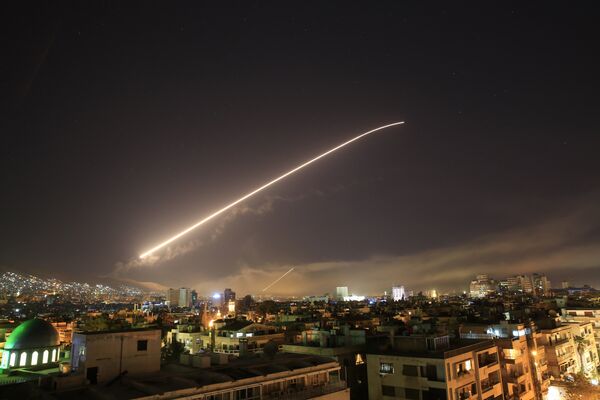
US Regime Change Ops Have Never Borne Positive Fruits
While pondering about American Iran hawks' potential regime change scenarios, Walt remarked that sanctions and massive protests are unlikely to topple the government in Tehran, while "leaving the JCPOA isn't going to bring Iran to its knees."
"What if I'm wrong and the clerical regime did collapse? As we have seen in other settings, the result is not likely to be a stable, well-functioning, and pro-American regime," the American academic remarked.
He noted that US interventions in the Middle East could hardly be called successful: "US-sponsored regime change in Iraq led to a civil war, a brutal insurgency, and the rise of the Islamic State [Daesh*]. Ditto with foreign-imposed regime change in Libya." The academic underscored that Washington has also intervened in Somalia, Yemen, Afghanistan and Syria, "and all it reaped was additional instability and fertile ground for terrorists."
*Daesh (ISIS/ISIL/IS) is a terrorist group banned in Russia.
The views and opinions expressed by Charles Ortel, Ekaterina Blinova are those of the contributors and do not necessarily reflect those of Sputnik.

